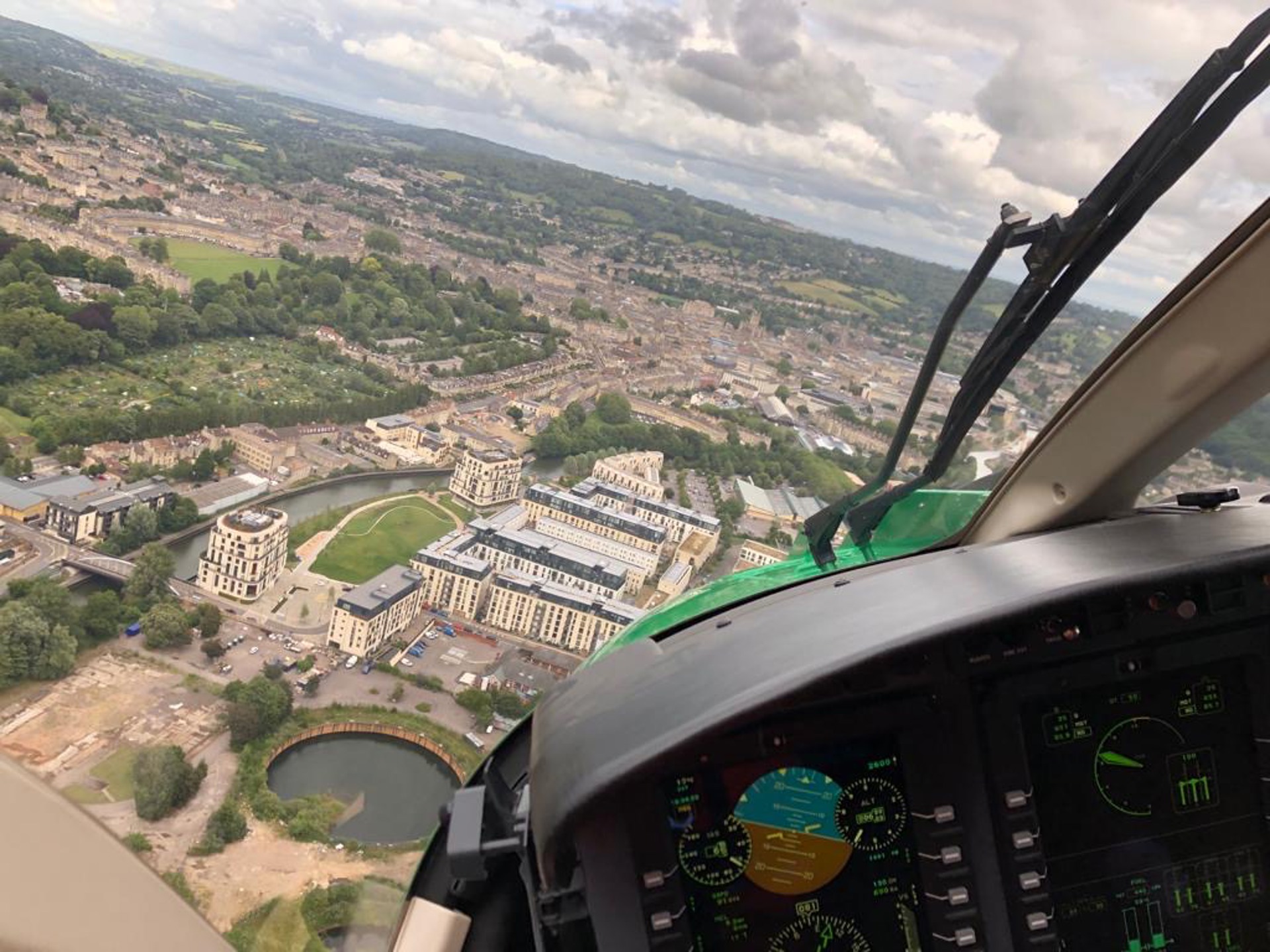Our impact | January 2024
Monday, 19 February 2024

Of those 118 emergencies, the aircrew attended 63 missions in our Bell 429 helicopter, with 55 in our two critical care cars.
With the dark nights of January still lingering, it’s no surprise that of all missions in the month, 43 took place at night, when the pilots need to use specialised night vision goggles.
Our critical care paramedics and pre-hospital doctors are often called upon to perform surgical procedures, deliver blood transfusions and administer pre-hospital emergency anaesthesia at the scene of an incident.
During January, the team carried out seven procedural sedations. This enables our crew to perform a variety of therapeutic interventions to reduce pain following trauma injuries.
We were called to the Swindon area the most during January, to a total of 23 incidents. Second to this was Chippenham and Somerset with 12 incidents. Bath was our third most visited area, with our crew attending 11 missions in the city.
We carry two units of O Negative red blood cells, two units of O Positive red blood cells and four units of plasma on board. Two patients received a blood transfusion before being transferred to hospital in January.
Bath’s Royal United Hospital was our top visited hospital, with 11 patient transfers taking place. In total we took patients to eight different hospitals across the region, spanning from Bristol to Poole in Dorset!
The month saw five patients needing pre-hospital emergency anaesthesia, which is a vital yet high-risk intervention. It is used in order for our critical care teams to gain rapid control of a patient’s physiology following serious traumatic or medical incidents.
Of the 118 missions, we attended 32 cardiac emergencies. Our second highest attended mission type sadly involved self-harm incidents, 20, and falls totalled 12.

Our aircrew supported 14 patients with advanced airway management, carried out one surgical intervention, and on seven occasions the team used the LUCAS machine to deliver CPR.
Our pre-hospital doctors administered one regional nerve block during January. This is when specific areas can be numbed individually where an operation is being performed.
This is a skill our critical care paramedics will be able to undertake going forwards as the charity continues to enhance its clinical operations.
Of the 118 missions during the month, 46 took place with doctors as part of the crew.
To find out more about where we have been and our most recent missions, click here to use our interactive Mission Map.
Have you been treated by us?
If you or someone you know has been treated by our critical care team, it would be great to hear from you. We can arrange for a visit to the airbase for the chance to meet our pilots, paramedics and doctors.